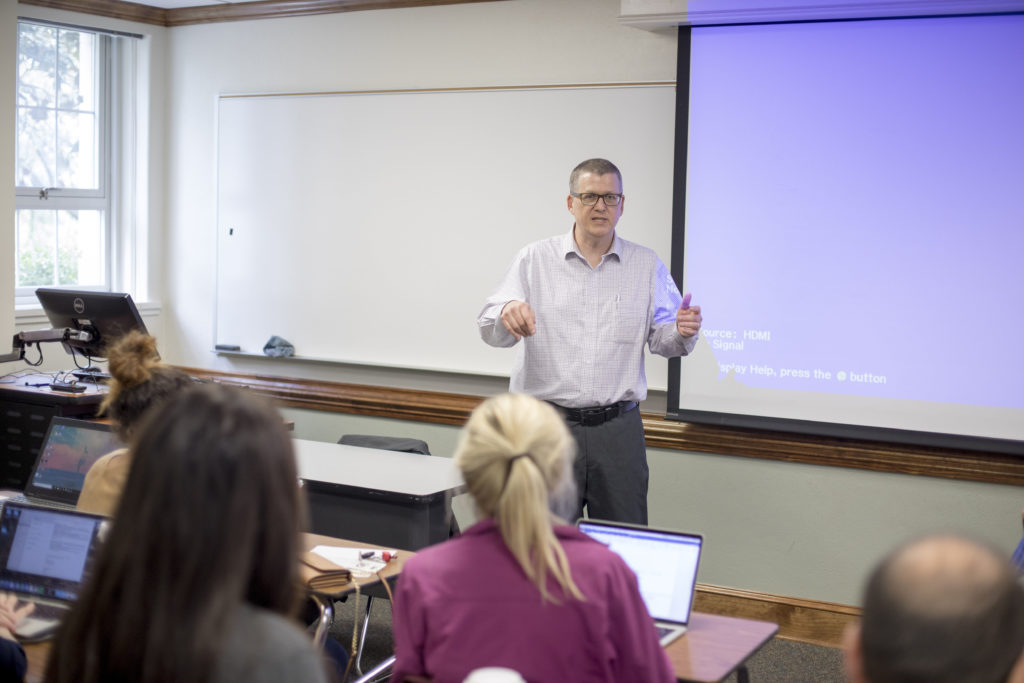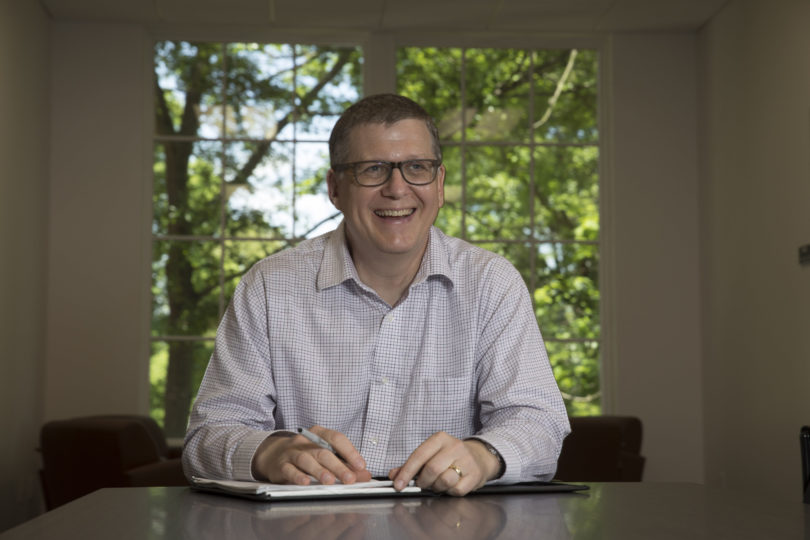Andrew Whitford, the Alexander M. Crenshaw Professor of Public Policy in the School of Public and International Affairs, conducts research at the nexus of policy design and implementation.
Where did you earn degrees and what are your current responsibilities at UGA?
I earned by bachelor’s degree in political science and political economy from Carson-Newman College, my master’s degree in economics from the University of Tennessee-Knoxville, and my Ph.D. in political science from Washington University in St. Louis.
I serve as the Alexander M. Crenshaw Professor of Public Policy in the department of public administration and policy in the School of Public and International Affairs.
When did you come to UGA and what brought you here?
I came to UGA in 2004. I was attracted by the very high quality of the department of public administration and policy (currently ranked in the top five in the United States). I had never worked in a department of public administration and policy; my previous positions were in political science.
What are your favorite courses and why?
I enjoy teaching courses for our Master of Public Administration students. For instance, I regularly teach a course that helps practitioners make decisions using data. We think about statistics as inputs to decisions and not just as research methods. I also enjoy teaching a course on regulation in which I cover both the “old” and “new” economies.
What are some highlights of your career at UGA?
I am pleased that I have contributed to our longstanding reputation as one of the best public management and public policy departments in the world. At the individual level, I greatly enjoy the close relationships I have built with my former Ph.D. students, who now work around the world.
How do you describe the scope and impact of your research or scholarship to people outside of your field?
Governments are asked to solve novel, hard problems. My research centers on the nexus between “what should government do” (policy design) and “how should government do it” (implementation). For instance, one current research project is about the use of advanced facial recognition systems by governments. Should local governments deploy Amazon’s Rekognition on police cruisers as they patrol?
 How does your research or scholarship inspire your teaching, and vice versa?
How does your research or scholarship inspire your teaching, and vice versa?
It is natural that the two are connected. For instance, in my regulation course I discuss “new economy” topics like robotics and artificial intelligence. Because our MPA cohort includes so many people with substantial work experience, classroom discussions can become almost like the focus groups faculty often use in fieldwork.
What do you hope students gain from their classroom experience with you?
My greatest hope is that students “learn to love to learn.” The most difficult problems in governance are novel. No classroom experience can provide the answers needed to solve future governance problems – but we can learn how to learn about such problems.
Describe your ideal student.
This is a difficult question. I most enjoy working with students who are open about their struggles in courses, because it helps me find a path to helping them.
Favorite place to be/thing to do on campus is …
I enjoy the Founders Memorial Garden as a place to read or mark papers.
Beyond the UGA campus, I like to …
Athens is a great town for walking. The State Botanical Garden of Georgia is superb.
Community/civic involvement includes …
Our son is a cancer survivor, so our family has spent a great deal of time with Camp Sunshine. We’re grateful for the UGA community’s support of Camp Sunshine and other resources for pediatric cancer patients and survivors.
Favorite book/movie (and why)?
Our family has followed the Marvel Cinematic Universe closely.








